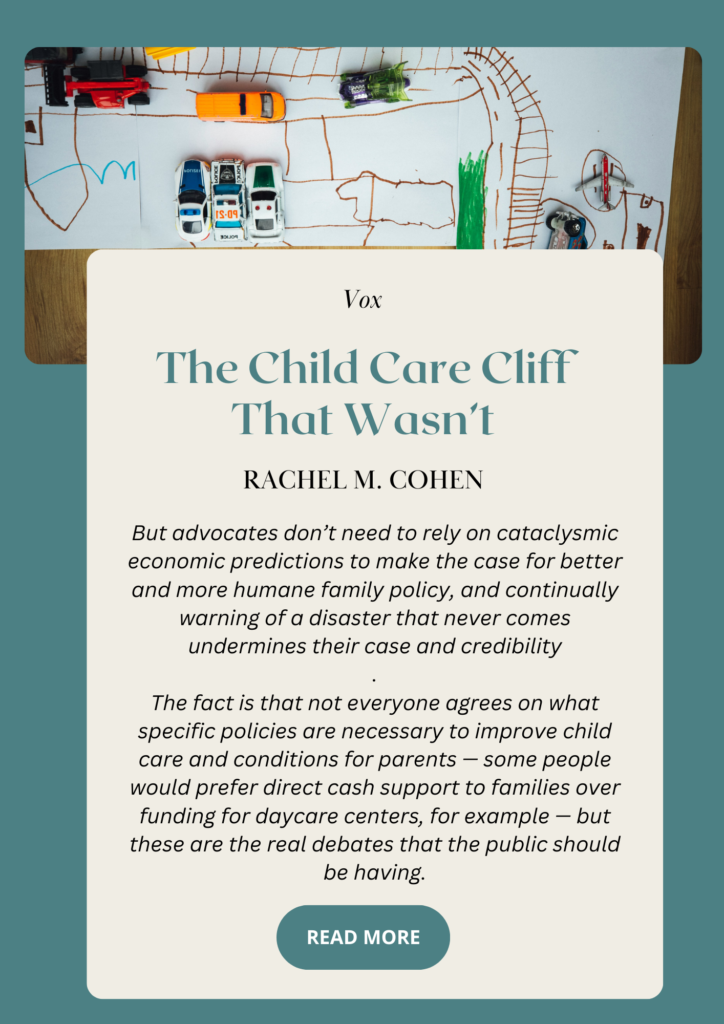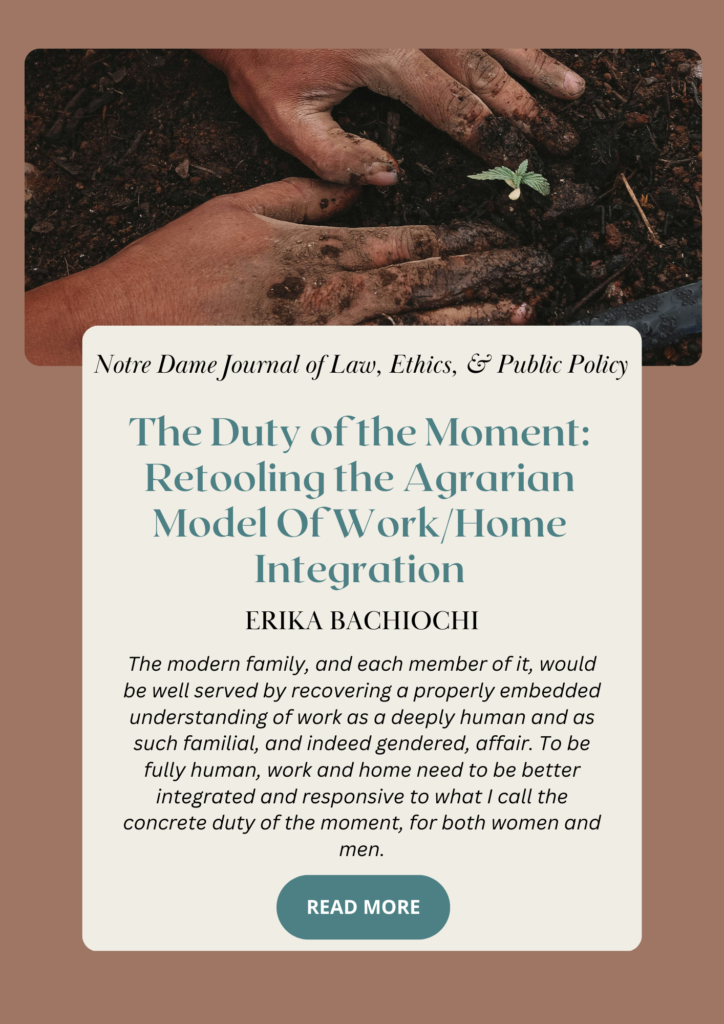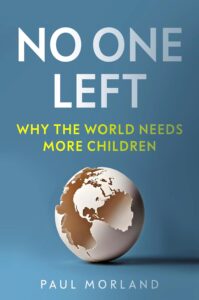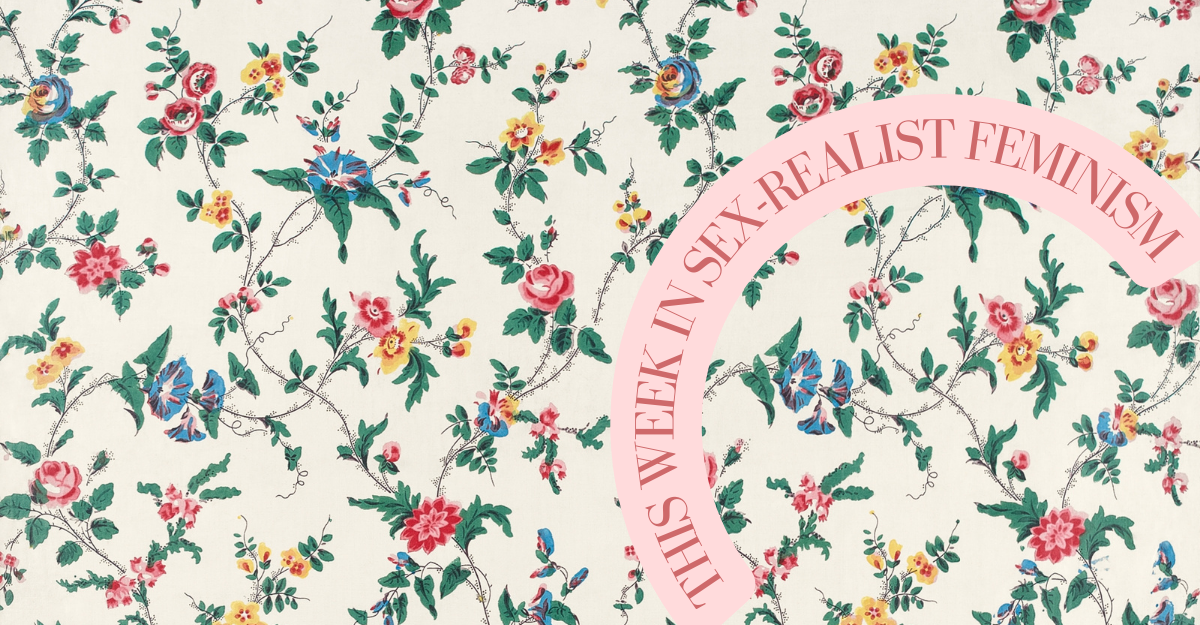Welcome to the weekly Fairer Disputations round-up: your one-stop shop for the best in sex-realist feminism. This week: Rachel M. Cohen on the child care cliff, Erika Bachiochi on the agrarian model, Ivana Greco on homoemaking as a craft, the La Leche League erases mothers, midlife crises, what Featured Author Nina Power is reading—and more!
First, a nuanced piece on the state of child care in America—and the conversations we need to have about it.

Next, Featured Author Erika Bachiochi on learning from the agrarian model to promote an integrated view of work and home life.

Finally, Featured Author Ivana Greco on homemaking as a craft, one that can be developed over time.

More Great Reads:
- Shortcomings of Modern Feminism: An Essay Response to Erika Bachiochi’s The Rights of Women: Reclaiming a Lost Vision, Elizabeth Corey, Center for Religion, Culture, and Democracy
- Am I a Bad Wife for Not Booking My Husband’s Haircuts?, Mary Harrington Reactionary Feminist
- La Leche League Erases Mothers, Bethany Mandel, The Free Pres
- Marrying for the “Right” Reasons, Marcia A. Zug, Institute for Family Studies
- Schrödinger’s Sex Binary, Victoria Smith, The Critic
- The New Midlife Crisis, Matthew Schmitz, First Things
What I’m Reading: Nina Power

Recently, I’ve been wondering what a sex realist feminism in the 2020s can learn from the more esoteric parts of the second wave. While we are perhaps familiar with the critique of “new age” feminism, which we might dismiss as “goddess worship” or “woo,” I’ve recently been reading The Great Cosmic Mother: Rediscovering the Religion of the Earth by Monica Sjöö and Barbara Mor, composed in a patchwork way between 1975 and 1987. This book presents a much tougher herstory than the watered-down weak paganism and environmentalism of the contemporary moment.
On the contrary, the authors, each no stranger to the brutality this earth has to offer (Mor was homeless and cleaning motel toilets even as her book was being taught on US campuses; Sjöö tragically lost two of her children to accident and illness) are adamantine in their critique of what they call “the machine”: “Earth and life haven’t changed,” they write, “our definitions of reality have been changed—allowing us to perceive and experience only the most mechanistic aspects of the life process.”
By tracing the occluded history of female deities and sacred sites across the world, the authors argue that women’s relation to life and death (which they see as inseparable and call the “Great Mother”) has been deliberately eroded and obscured by the machine, which is man’s attempt to emulate women’s power. The authors are undoubtedly “sex realist” in the sense that they see male and female sexual difference as cosmic and profound: “Biology is not destiny,” they write, “but, like the sea, it is a beginning.”
While there are important differences to tease out between the socially conservative aspects of a burgeoning return to sex realism, after the excesses and weightless madness of liberal feminism, and the Goddess feminism of this text, there is much of interest here to us: how far do we accept the historical story of patriarchy presented here? How do we conceive of women’s relation to religion and the earth (much of which is at odds with the church)? Which aspects of modernity and “progress” do we want to hold on to, and what might we regard, negatively, as the “machine”?



